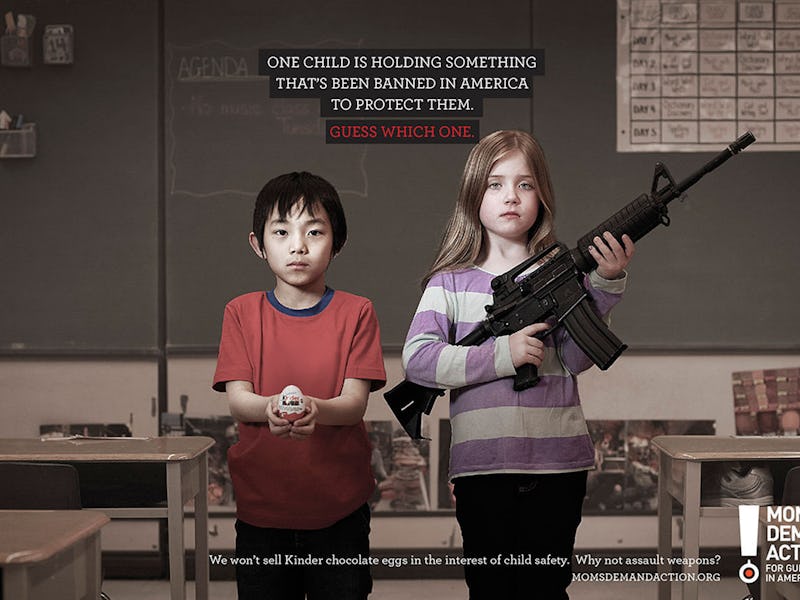Why Kinder Surprise Is Illegal in the U.S., Unlike Semi-Automatic Rifles
U.S. lawmakers take extreme measures to protect kids — but only from themselves?

Since 1974, Kinder Eggs have delighted generations of children around the world — but American kids have, for the most part, missed out on the sweet. This is because the chocolate eggs with a small toy inside are covered by a 1938 ban against any candy containing toys.
The Food and Drug Administration ban, passed under the “Food, Drug, and Cosmetic Act,” is against any toy or “non-nutritive object embedded” in a candy. But despite this, a small number of Kinder eggs have still made their way into the United States via chocolate fans who took the risk of smuggling them. In 2011, 60,000 smuggled eggs were seized by border control officials, according to U.S. Customs and Border Protection, with an untold number making their way to American consumers — who have not, it seems, choked on the small parts, despite fears.
Over the years, this ban has drawn a fair amount of ridicule for the over-protectiveness of children enshrined in federal law, and in recent days it has received renewed attention given the increased debates on gun control prompted by the mass shooting of a high school in Parkland, Florida, that left 17 dead.
This is not the first time that the Kinder Egg has been brought into the gun debate. In 2013, after the Newtown school shootings, the non-profit advocacy group Moms Demand Action published a campaign called “Choose One” that contrasted the lack of a ban on assault rifles with the existing bans on everything from dodge balls to a version of Little Red Riding Hood in two schools to, of course, the Kinder Egg.
It’s worth noting that in November 2017, Kinder Joy, a version of the treat with the chocolate and the plastic toy packaged separately, became available in the U.S. for the first time. However, that doesn’t change the oddness of American laws that criminalize the purchasing of a chocolate that is beloved — and deemed safe — to the rest of the world, but not the assault weapons that have proven again and again to actually be deadly to American children.